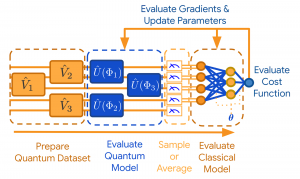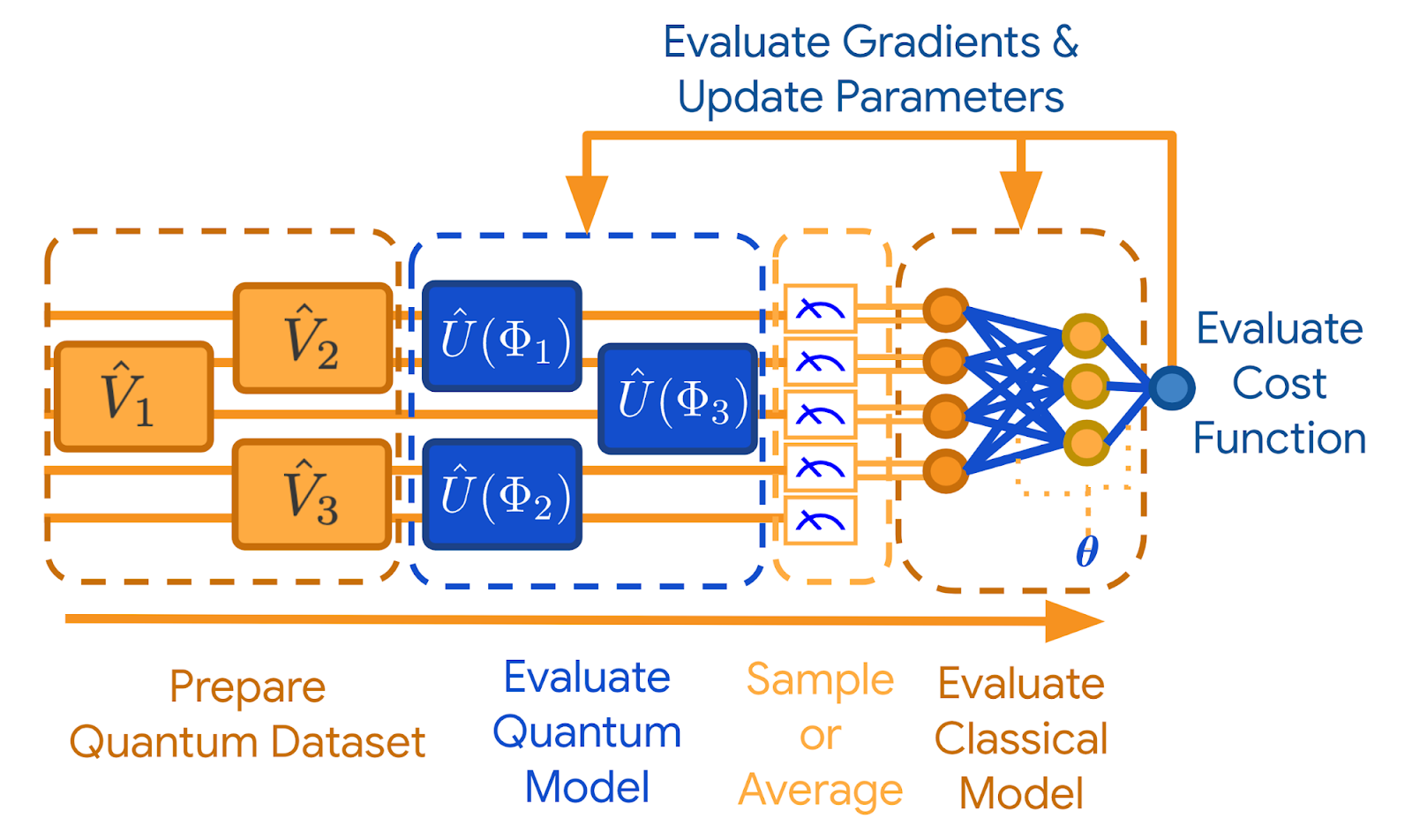
Google recently announced the release of TensorFlow Quantum (TFQ), an open-source library for the rapid prototyping of quantum Machine Learning (ML) models, according to a blog post.
The company is collaborating with the University of Waterloo, X, and Volkswagen on the project.
According to the post, TFQ provides the tools necessary for bringing the quantum computing and machine learning research communities together to control and model natural or artificial quantum systems; e.g. Noisy Intermediate Scale Quantum (NISQ) processors with ~50 – 100 qubits.
“Under the hood, TFQ integrates Cirq with TensorFlow, and offers high-level abstractions for the design and implementation of both discriminative and generative quantum-classical models by providing quantum computing primitives compatible with existing TensorFlow APIs, along with high-performance quantum circuit simulators,” according to the post.

The researchers write that a quantum model has the ability to represent and generalize data with a quantum mechanical origin, but quantum data and hybrid quantum-classical models must be introduced.
The researchers report: “Quantum data exhibits superposition and entanglement, leading to joint probability distributions that could require an exponential amount of classical computational resources to represent or store. Quantum data, which can be generated / simulated on quantum processors / sensors / networks include the simulation of chemicals and quantum matter, quantum control, quantum communication networks, quantum metrology, and much more.”
Noise Is The Problem and ML Can Help
Quantum data generated by NISQ processors are noisy and are typically entangled just before the measurement occurs. Applying quantum machine learning to noisy entangled quantum data can maximize extraction of useful classical information.
The TFQ library helps develop models that disentangle and generalize correlations in quantum data, opening up opportunities to improve existing quantum algorithms or discover new quantum algorithms, according to the post.
Hybrid Quantum-Classical Models
Near-term quantum processors are still fairly small and noisy. Therefore, quantum models cannot use quantum processors alone. NISQ processors must work with classical processors to become effective.
According to the post: “As TensorFlow already supports heterogeneous computing across CPUs, GPUs, and TPUs, it is a natural platform for experimenting with hybrid quantum-classical algorithms. TFQ contains the basic structures, such as qubits, gates, circuits, and measurement operators that are required for specifying quantum computations. User-specified quantum computations can then be executed in simulation or on real hardware. Cirq also contains substantial machinery that helps users design efficient algorithms for NISQ machines, such as compilers and schedulers, and enables the implementation of hybrid quantum-classical algorithms to run on quantum circuit simulators, and eventually on quantum processors.”
The researchers conclude that exciting new discoveries are possible by bridging the ML and Quantum communities. Combining these two communities will also accelerate the discovery of new quantum algorithms to solve the world’s most challenging problems.
You can learn more about TFQ on Google’s white paper and by visiting the TensorFlow Quantum website.















